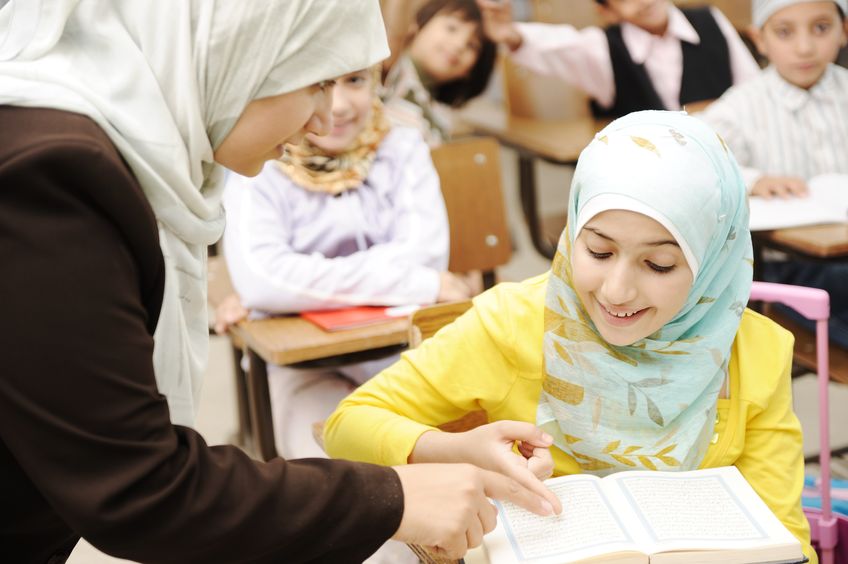She was more than a wife, she was a scholar. Hazrat Aisha (RA), the beloved wife of Prophet Muhammad (peace be upon him), was a fierce intellect, a teacher to the ummah, and a key figure in the preservation and explanation of Islamic knowledge.
In a recent reflection, Mualimah Aamtullah Matroos called on Muslim communities to revisit Aisha (RA)’s legacy, not as a relic of the past, but as a relevant and necessary model for today, especially in how we educate our daughters.
SMread: Mothers4Gaza hold silent protest against starvation and genocide in Gaza
Raised in faith, nurtured by knowledge
Born into a household of sacrifice and spirituality, Aisha (RA) grew up surrounded by the Quran, sincerity, and unwavering submission to Allah. Her father, Abu Bakr (RA), was the Prophet’s closest companion. That upbringing created an environment where knowledge was absorbed not just from books, but from lived devotion.
Her marriage to the Prophet was not merely a personal union but a divine plan. “Aisha looked the Prophet in the eye and she loved the Prophet severely and she said I will not thank the Prophet but I will thank my Allah,” Mualima Matroos quoted.
Her home became a centre of learning. The Prophet taught her intimately, and she absorbed not only his words but his way of thinking. That is why, after his passing, she was consulted by companions on matters of fiqh and hadith. She narrated more than 2 000 authentic sayings of the Prophet, many of which contain details only she could offer, giving the ummah deep insight into both worship and daily life.
SMread: Nowhere safe: sexual violence crisis engulfs eastern DRC
She questioned, argued, and taught.
“Aisha (RA) was the pinnacle of knowledge…of receiving it, of giving it, of explaining it, of interacting with it, and arguing for and on behalf of it severely,” said Matroos.
She never held back. She questioned rulings. She asked for clarity. She debated. In an era where women were often dismissed, Aisha stood as an authority in Islamic law, medicine, and poetry. She corrected senior companions, issued fatwas, and remained accessible to men and women alike.
After the Prophet’s passing, she did not retreat into silence. “She fought political powers,” said Matroos. “She had this agreement based on factual hadith that were mentioned in Quranic verse and she did not keep quiet.”
For over 40 years, Aisha used her voice to preserve, protect, and propagate Islam. She engaged in public debate, challenged injustice, and remained a moral and intellectual compass for the growing Muslim ummah.
SMread: Activists defy Cape Union Mart ban
Education starts early and with love
One of the key messages from the discussion was the importance of starting Islamic education early, and gently. “Let us allow our kids to fall in love with Allah…long before we bring in a rule and a regulation,” said Matroos.
Aisha’s (RA) own story is proof that when children grow up in a space where faith is lived, discussed, and felt, they naturally absorb its value.
Muslim families are encouraged to prioritise both Islamic and secular knowledge from a young age, especially for daughters. “Every single one of our children is supposed to be participants,” said Matroos.
Because how can a girl grow into a woman who knows her rights and responsibilities in Islam, if she is not given access to knowledge early? Aisha’s life teaches that love for learning and the courage to question are not masculine traits , they are Muslim traits.
SMread: South Africa unveils response to looming 30% US tariff
Laying down a foundation
Aisha (RA) was not just a historical figure to be admired. She is a model to be followed. “Knowledge cannot have a limit. It doesn’t have a time frame and it doesn’t have a limit,” Matroos reminded. Islam honours knowledge. It uplifts the one who learns and the one who teaches. Aisha (RA) was both.
Her legacy invites us to open doors for our daughters, to answer their difficult questions, and to let them speak. Not after they are married. Not when they are older. But now. Hazrat Aisha’s story is not just a lesson in what was, it is a guide for what still can be.
For more on this, watch the video below:
Image via The Humanist.
